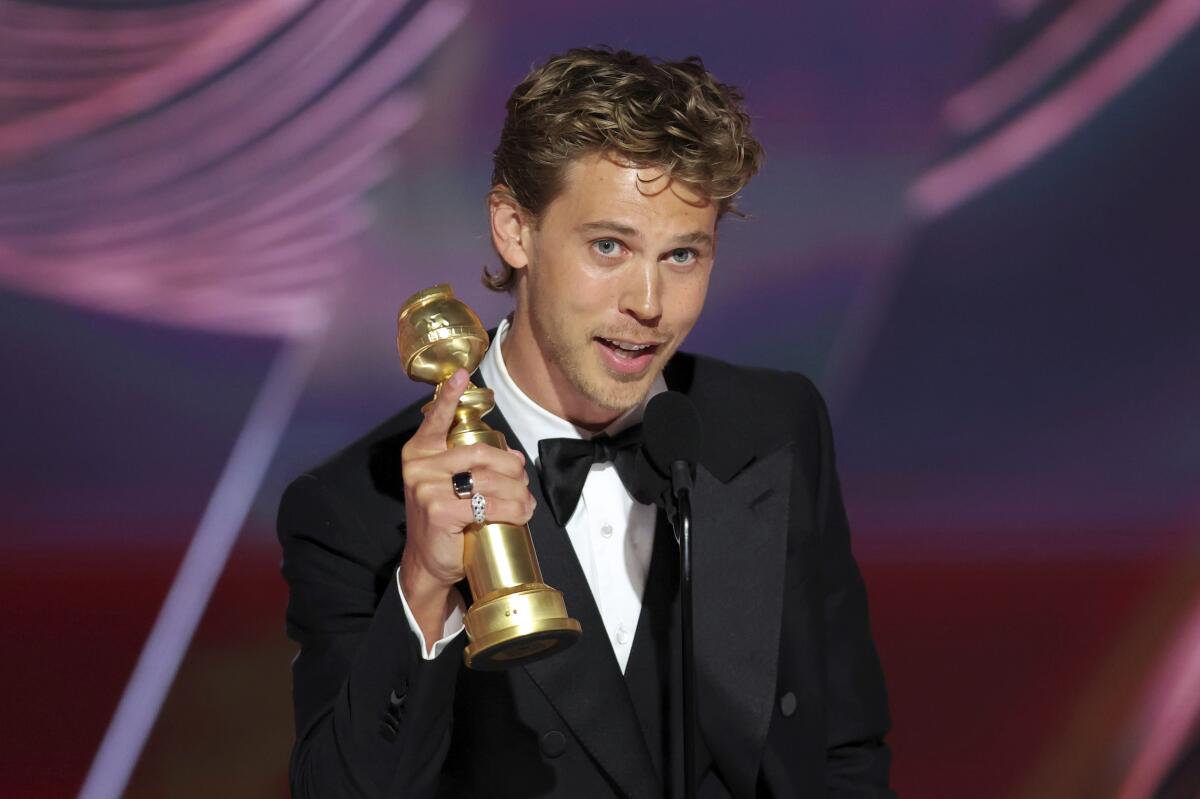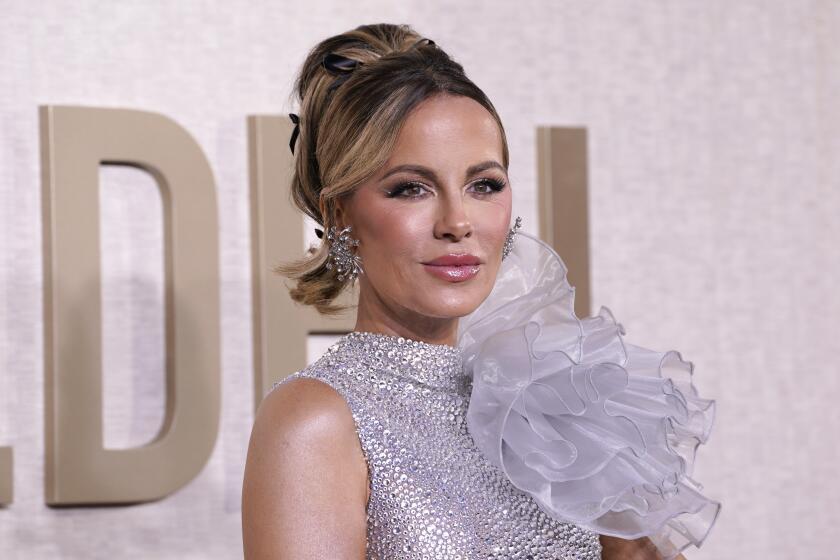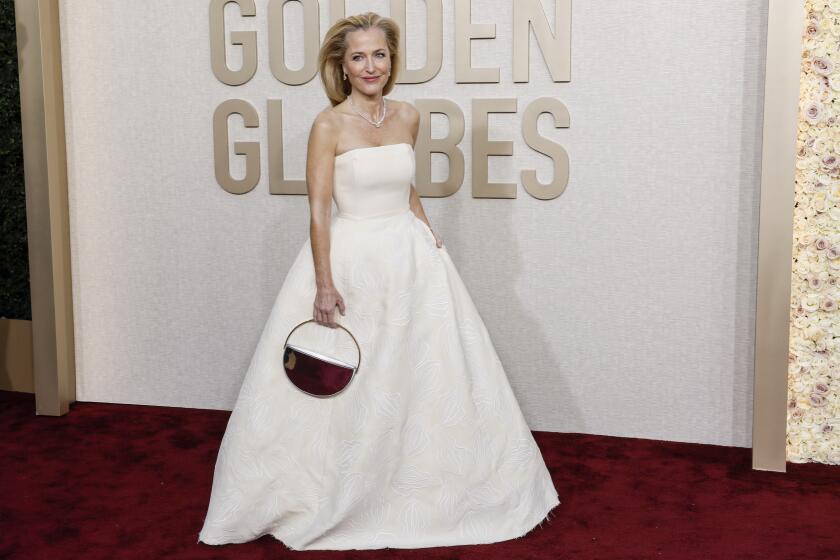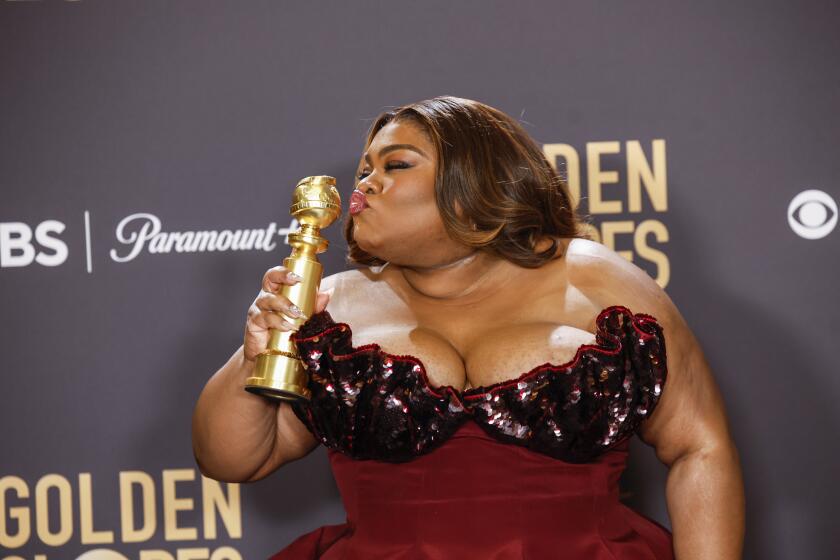The HFPA is no more: California OKs plan to make Golden Globes a for-profit enterprise

Capping more than two years of turmoil and transformation, the Golden Globe Awards are officially under new management. And the Hollywood Foreign Press Assn., at least on paper, is no more.
The California attorney general has signed off on billionaire businessman and investor Todd Boehly’s plan to dissolve the embattled HFPA — the tiny, improbably powerful group of international entertainment journalists that has handed out the Globes for 80 years — and convert the nonprofit’s 95 members into employees of a for-profit enterprise.
Under the deal announced Monday, the financial terms of which were not disclosed, the Golden Globes’ assets have been acquired by Boehly’s private equity firm, Eldridge Industries, along with Dick Clark Productions, which has long produced the awards and which is owned by Penske Media in partnership with Eldridge. Dick Clark Productions and its partners will oversee the awards telecast and look for other ways to extend the Globes around the world.
The proceeds from the deal, along with the existing resources of the HFPA, will transition into a newly formed nonprofit Golden Globe Foundation, which will oversee the group’s philanthropic and charitable giving.
“We are excited to close on this much-anticipated member-approved transaction and transition from a member-led organization to a commercial enterprise,” Helen Hoehne, formerly HFPA’s president, said in a statement Monday.
“Today marks a significant milestone in the evolution of the Golden Globes,” said Boehly, who serves as chairman of Eldridge. “My partners at DCP and I are grateful to Helen and team for their commitment to the successful implementation of a robust approach to governance, the expansion of the diverse and international voting body, implementing a professional, safe and accountable environment, and trusting new ownership with a new direction for the Globes.”
Speaking with The Times in December, Boehly — who has served as the organization’s interim chief executive since October 2021 — said that reconstituting as a for-profit entity would help professionalize a group that has been dogged for decades by scandals, in-fighting and questions of legitimacy. Among other issues, HFPA members’ demands for exclusive access to talent were a frequent source of tension within the industry, even as stars continued to court the group.
“How do you make people accountable?” Boehly asked. “Well, you transition the organization from a not-for-profit with no accountability and bad governance to an organization where there is employee-based accountability.”
Boehly first proposed his plan to remake the organization nearly two years ago, as the HFPA was reeling in the wake of a February 2021 Times investigation that exposed a lack of diversity in its membership and raised concerns about its ethics and financial practices. The Times’ probe revealed that the nonprofit made millions of dollars in payments to its own members for committee work and other tasks, in potential violation of IRS guidelines.
The investigation — particularly the revelation that the group had no Black members — sparked an uproar in Hollywood, prompting the HFPA to undertake sweeping reforms and ultimately leading NBC to pull the show off the air for 2022. The group overhauled its bylaws and has more than tripled its ranks, recruiting scores of new nonmember international voters in an effort to boost its diversity and credibility. The Globes’ total voting body now numbers more than 310 journalists. (The newly added voters will not be paid employees.)
Trying to restore the awards’ luster and mend ruptured relations with Hollywood, the Globes returned to the air in January, with A-listers like Brad Pitt, Steven Spielberg and Rihanna once again strutting the red carpet. Ratings were down, however, with the telecast attracting an average of 6.25 million viewers, according to Nielsen data. In 2019, the show drew nearly 19 million viewers.
Under the association’s new incarnation, its employees will receive an annual salary of $75,000 for their work. Their responsibilities will include screening films and TV series submitted for Golden Globe consideration, participating in the voting process for nominations and winners, creating content for the organization’s website and managing materials related to the awards show and the group’s history.
After a period of fierce internal debate, Boehly’s plan was approved in July by the group’s members. The new employment contract includes a “walk-away” clause, according to a copy reviewed by The Times, which would allow members to terminate their association with the group and receive $225,000 as severance. It is uncertain how many current members may choose to exercise this option.
Eldridge Industries also owns stakes in several other businesses linked to the Globes, including the Penske-owned trade publications the Hollywood Reporter and Variety. The Eldridge portfolio also includes a minority stake in the independent film company A24, whose movies received 10 nominations at the most recent Golden Globes.
Some current and former HFPA members, as well as some in the wider awards ecosystem, have questioned whether the Globes — which have been routinely mocked even from their own stage — will have greater credibility as a for-profit enterprise, particularly given its owner’s potential conflicts of interest. Speaking with The Times last year, one former member who declined to be named for fear of retaliation said the move would “take away the last shred of legitimacy. They are now a commercial venture ... opaque, even less trustworthy.”
Boehly has brushed aside criticisms that Globes employees — unlike, say, members of the film or television academies that who hand out the Oscars and Emmys, respectively — will be essentially paid awards voters.
“I wouldn’t call them paid voters,” Boehly told The Times last year, noting that voting would constitute only part of employees’ role in the organization. “I don’t know why a paid journalist can’t also vote on something. Where’s the rule that says that?”
Even as the Golden Globes embarks on this new chapter, its future remains uncertain.
In bringing the Globes back, NBC — which has aired the show since 1996 — committed to just a one-year trial. Boehly has spoken of his desire to expand the Globes brand to international markets. Next year’s Globes, the 81st, is slated to air Jan. 7. But it remains to be seen whether the show will air on NBC, another TV network or a streaming platform.
Speaking with The Times in December, Boehly was sanguine about the road ahead.
“Distribution systems are now global — now we have Netflix and Apple and Amazon,” he said. “We have the opportunity to leverage those distribution systems with a brand that has 80 years of equity. I’m pretty excited about what that could look like, as long as there’s good governance and good alignment.”
Times staff writer Stacy Perman contributed to this report
More to Read
Inside the business of entertainment
The Wide Shot brings you news, analysis and insights on everything from streaming wars to production — and what it all means for the future.
You may occasionally receive promotional content from the Los Angeles Times.











